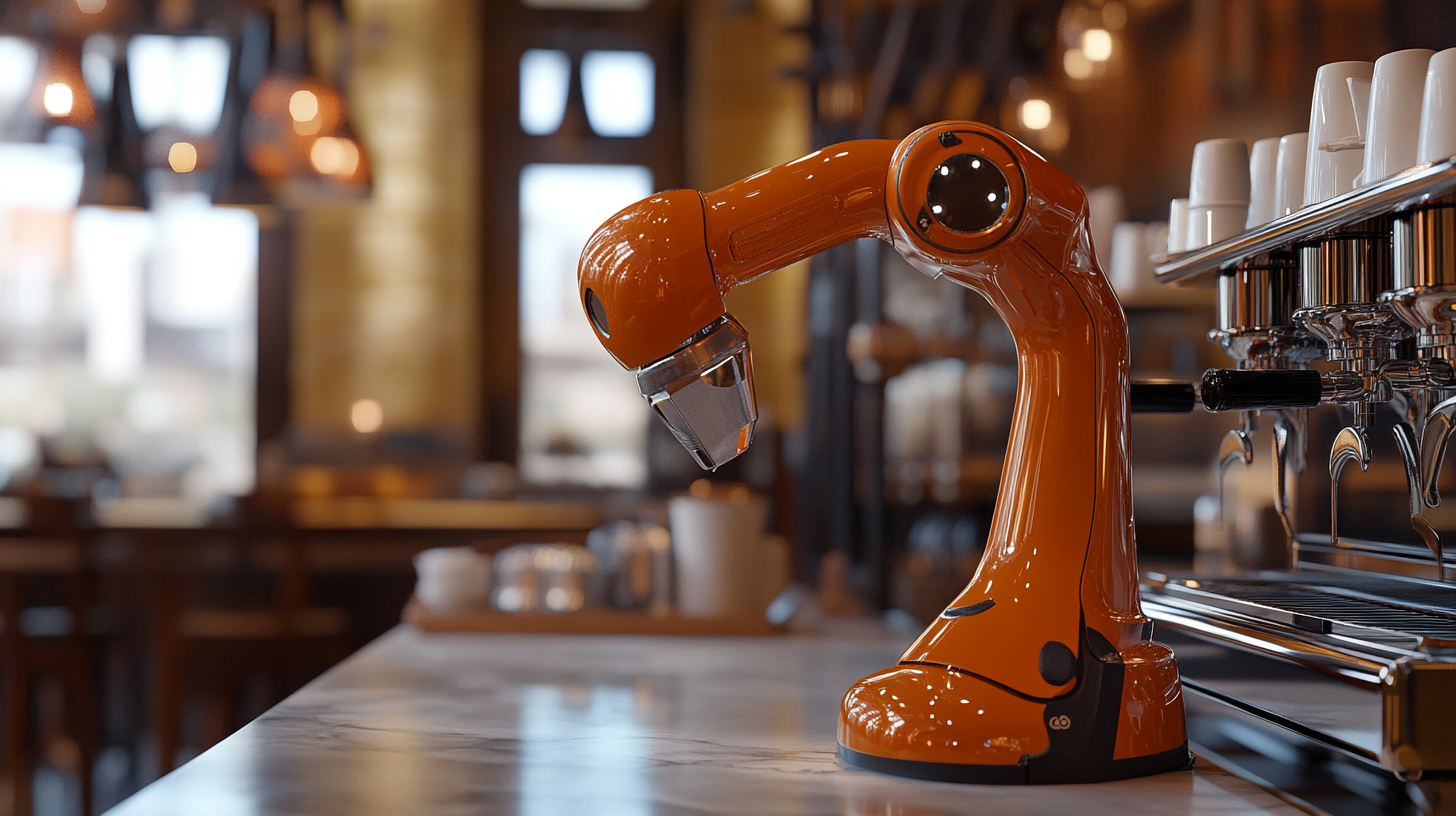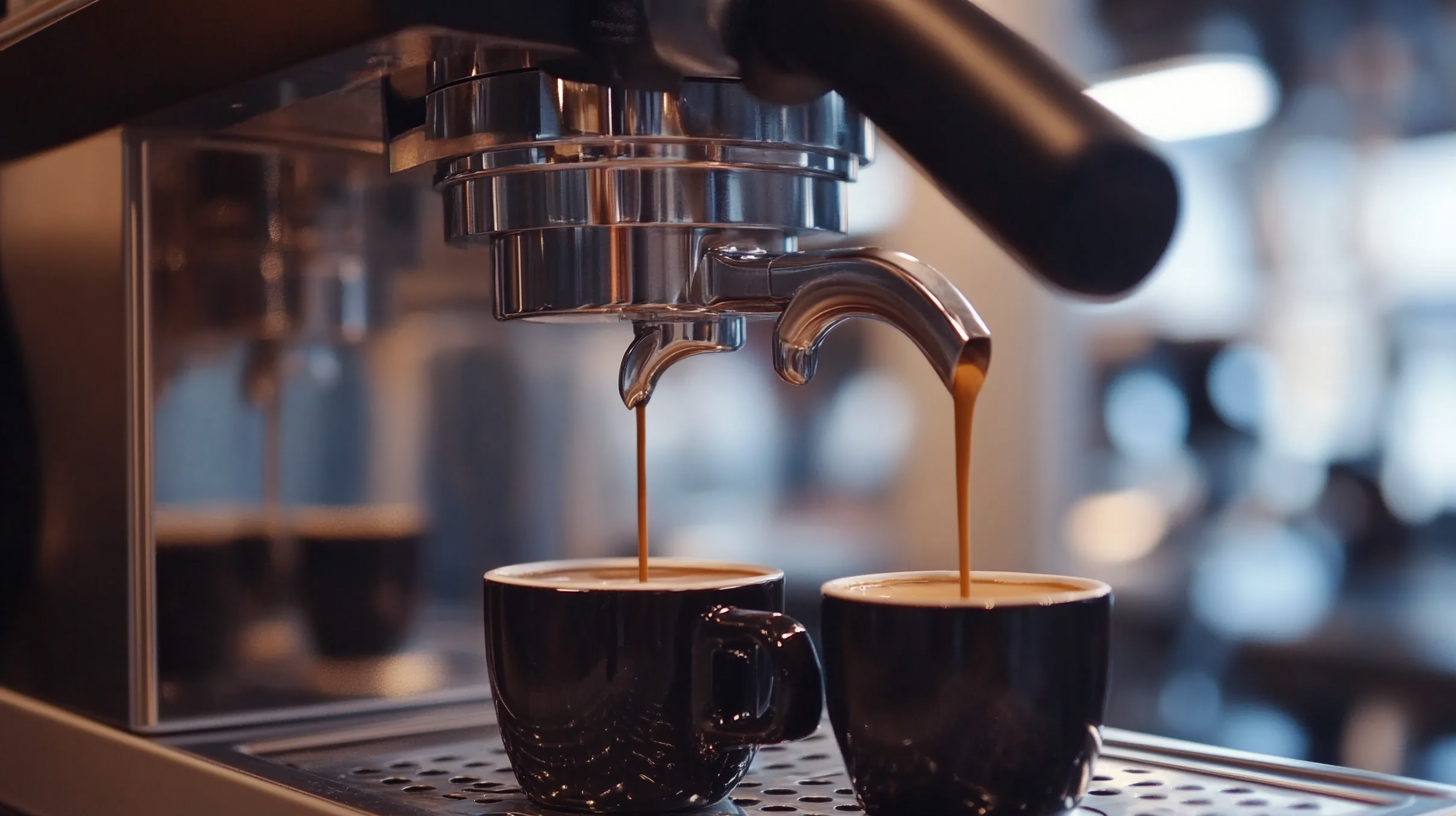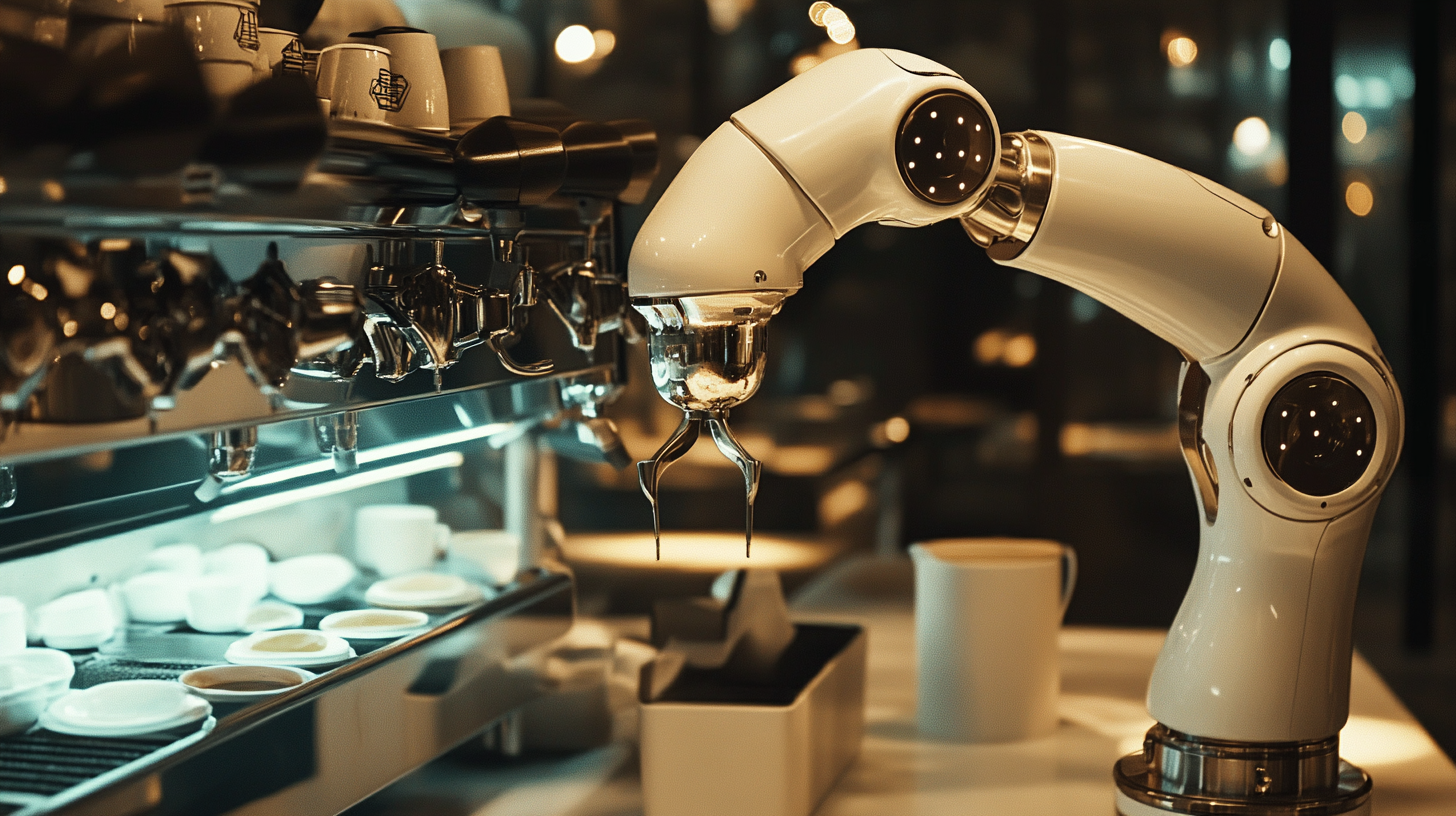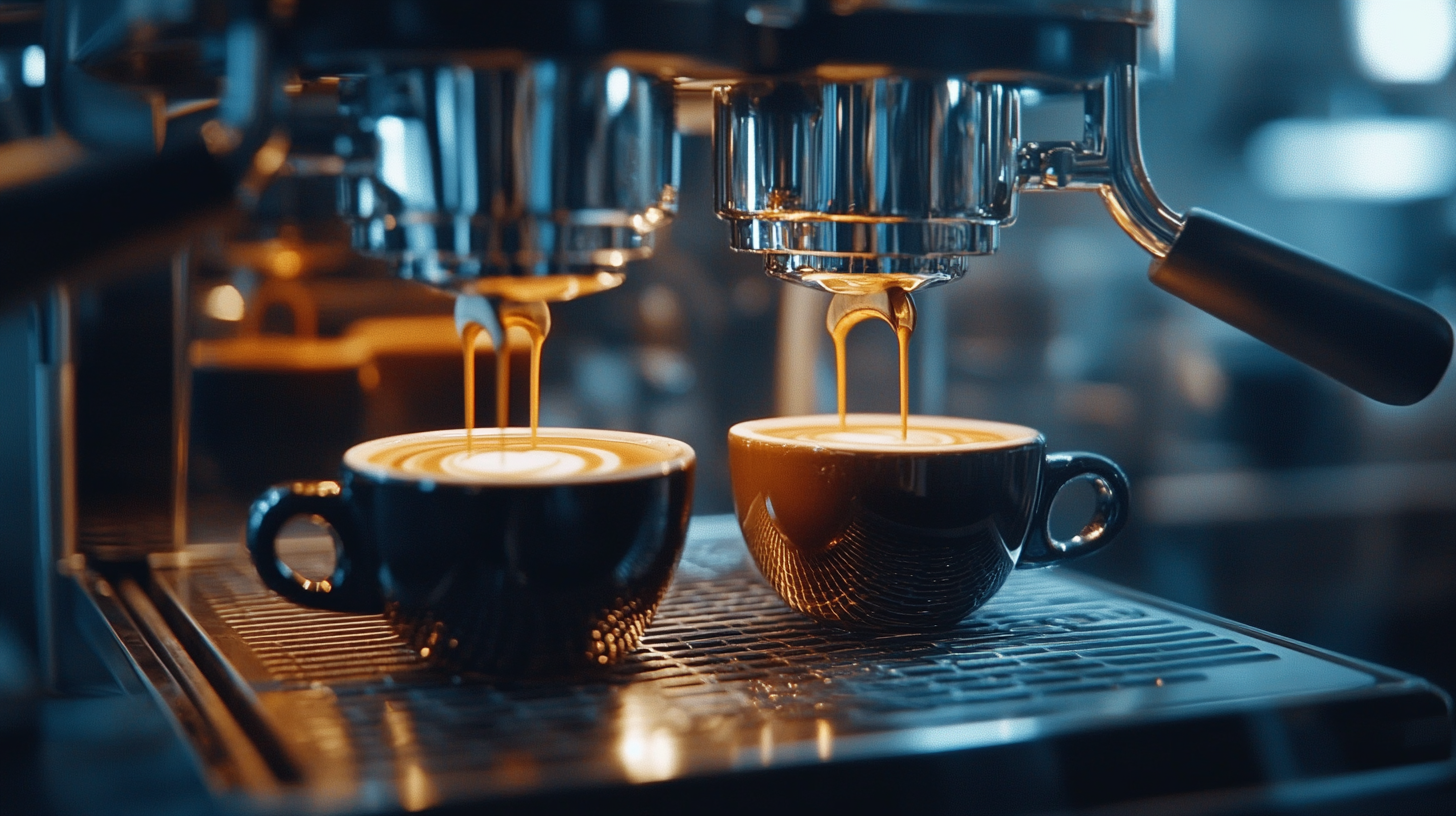Above all and especially on this digital continent where technology is reshaping day-to-day interactions, the hospitality industry has also begun redefining customer experience. Robotic Coffee Baristas bring a new milestone by innovative customer services and unique coffee experiences. It is beyond the machine that prepares high-quality drinks. Its customers want more and more of themselves that engage in the art of direct and personalized satisfaction to simplify operational processes. Speed and convenience are growing, so the robotic solution becomes instrumental in the competitive game in the food and beverage industry.
Beyond state-of the-art robotic technology, the successful international roll out of Robotic Coffee Barista would require strategy and the study of the various needs from markets replanning for other cultures to incorporating it into established systems as all the other headaches that would arise as well to capture the entire potential use of robotic barista. This blog will not only discuss the revolutionary side of robotic coffee technology but also the strategic lessons important for navigating market entry across the globe.

An emergent trend in the hospitality industry is the rising adoption of robotic coffee baristas, a trend that could well disrupt the consumer experience of the morning caffeine fix. According to a Research and Markets report, the worldwide coffee market is supposed to touch USD 102.02 billion by the year 2024, driven by the variable demand for specialty coffees. With consumers now increasingly on the look for special experiences and conveniences, coffee-making automation is falling into place. Robotic coffee baristas are more than a simple gimmick; they add operational value. A case study on CafeX, the technology-based coffee shop, shows that the robotic systems actually brew the best coffee during a slot of under 1 minute: faster than any old school baristas could do. This increased efficiency reduces wait time, a compelling factor in fast-paced operations such as during peak hours. Consistency is also another feature, whereby beverage quality is always assured, giving credence to the quality of each cup. Robotic baristas, seen as a solution to speed up service and quality, are currently being looked at as another answer toward labor shortages in the hospitality industry. Massive labor shortages await solutions-the National Restaurant Association reports that 74 percent of restaurant operators are concerned about finding qualified employees. Robotic solutions can be employed to relieve some of the staffing pressure, allowing businesses to redirect human resources toward duties such as customer service where they are less boring. Hospitality is on the verge of embracing the new technologies just as they unfold; the robotic coffee baristas will be integral to the coffee experience of the future.

The introduction of robotic technology in the hospitality industry has altered the way customers experience cafés and restaurants. Gone are the days when beverages served could only be of high quality and be served quickly. Robotics coffee baristas have automated operations that could brew two cups to up to 500 cups a day. Take, for example, the "Coffee Master." All this blood-curdling efficiency answers consumer demand, while, most importantly, giving customers the experience wherein they can be served quickly but without compromising quality.
So there will be such instances when loss due to automation becomes clear; however, robots are going to become one of the components in the entire dining experience rather than serve as mere tools for service. The futuristic design and functions of the robotic baristas create an environment capable of luring tech-savvy customers while building more excitement for them. It helps plant human touch into service so that staff may spend themselves doing more personalized service for a fuller dining atmosphere and yet keeps the operations overhead at bay.
Latest happenings in hospitality, like the fusion of hospitality with automotive showrooms, showcase the importance of greater environment. This is why today, a trend that is changing is how restaurants and cafés should transition towards automation and move forward with their spaces, such that they become complete experiences incorporating food, art, and technology. With such a melding of industries helping establishments to learn from each other, it's evident that the future for the experience of the customer will be marked by both robotic efficiencies and any number of creative immersive environments.

The food service market is known to be at one stage in growth, that is projected to reach $340.86 billion by 2024 globally. It is expected then to grow by approximately $402.76 billion, including about $681.18 billion by 2032. And this upward trend is fertile ground for innovative solutions such as robotic baristas, the embodiment of modern coffee culture-in-software applications.
In particular, it is predicted to hold a considerable market of about $36.1 billion in 2024 for robotic services. This is being augmented by flourishing e-commerce and online food segments with more than 17.1% CAGR in the compound annual growth rate projected from 2025 through 2034. Such rapid progress thus indicates the general tendency toward automating and effectively delivering food services, in particular, during beverage preparations.
The robotic coffee bars would address exactly the same cause as the above. Market analysis shows that segments of consumers, which are categorized based on coffee aficionados and just casual drinkers, are fundamental for getting value-based services from it as a self-service kiosk makes engaging certainly more convenient. By the year 2032, it is believed that such a niche belonging to the food service would largely change consumer interaction and introduce a new world in automated hospitality.

The introduction of robotic coffee baristas in regular coffee shops signifies a groundbreaking advancement for the hospitality sector. It has both prospects and challenges. According to a new research report by MarketsandMarkets, the global market for robotic automation in food service is likely to grow from billions to about $1.2 billion by the year 2026 at a compound annual growth rate (CAGR) of 9.2%. This extraordinary increase signifies the proclivity towards efficiency and consistency that will apparently be achieved through automation. However, change is not without its challenges.
The very first major barrier standing in the way of a coffee shop owner is the initial investment needed to introduce robotic baristas. This cost, which varies from $20,000 to $100,000 depending on the technology and customization, is just too much for a small business. It makes the owner hesitant to try this innovation. Besides, integrating robots into the well-established human-centric service model of coffee shops will raise customer concerns about lost personal interaction, as well as job displacement for baristas. A survey from QSR Magazine, for example, found that 56% of respondents hesitate about robotic staff because most fear losing the personal touch when getting their coffee.
Training and education efforts are necessary for overcoming those hurdles. Coffee shop owners should thus teach their staff members how to engage with customers on the merits of robotic baristas—precision brewing or speed while human employees perform those roles whose essence is personal service. Companies which are developing robots could also think of some payment flexibility or leasing arrangements that will help small businesses to obtain these robots while the challenge of affordability will be lessened. Hence, the future coffee shop can give room for combining modern-day needs with age-old values.
Hastening advances in robotics are reshaping the hospitality industry, especially the coffee enterprises in their small corner of the world. Success stories of how robots have been integrated into the coffee business from various regions prove factors regarding efficiency, satisfaction with the service, and overall success in business. The Japanese, for example, have improved their service through robotic assistance, and customers visit the coffee houses to enjoy an experience that draws its essence from technology. These robotic systems can make a variety of coffee drinks without error- consistency and saving time needed when there is a rush.
Meanwhile, in Europe, some cafes are fully automated coffee bars made possible by tech innovators to serve both the locals and the tourists. Such institutions use advanced Artificial Intelligence in terms of personalizing every order, allowing for customization of drinks using mobile apps. It is a seamless and fun experience while helping in ensuring fidelity to the brand and getting upfront savings in expenses related to labor. More case studies from North America include the investments in robotic coffee kiosks in busy areas, such as airports and train stations, where speed and convenience become the main justification.
Such cases from the world are views to possible ways these robotic coffee solutions have now marketed their use. The alliance of coffee brands with technology companies is going to be significant if businesses want to reach this level of satisfying the consumer whom they increasingly nurture into a technology-dependent creature. Organizations can use this successful implementation as a model blueprint to overcome obstacles in robotics' incorporation into traditional hospitality models and thus change coffee service in the world forever.